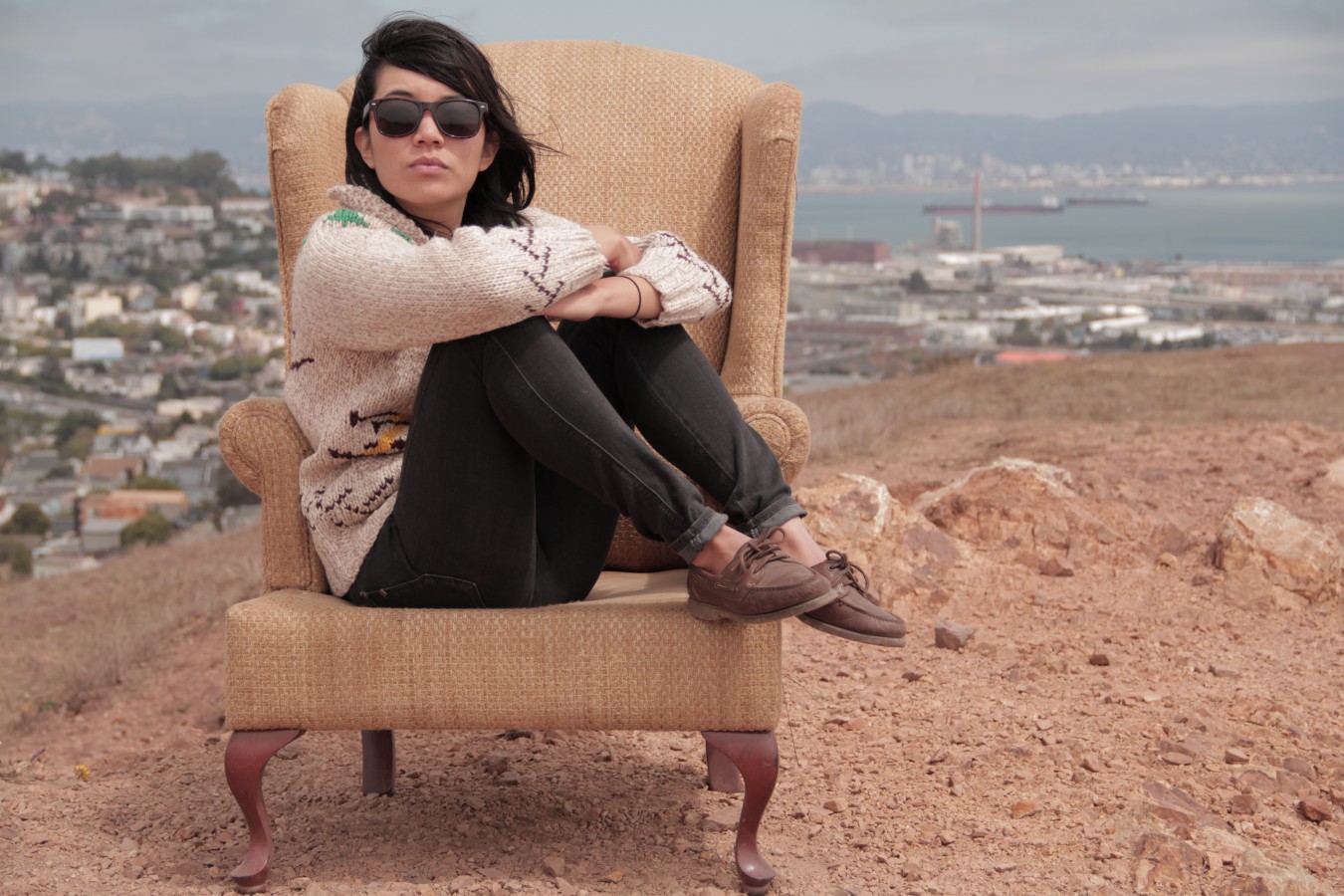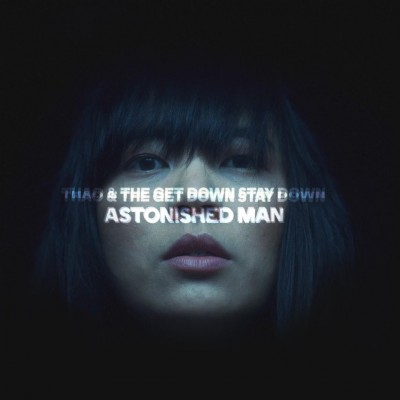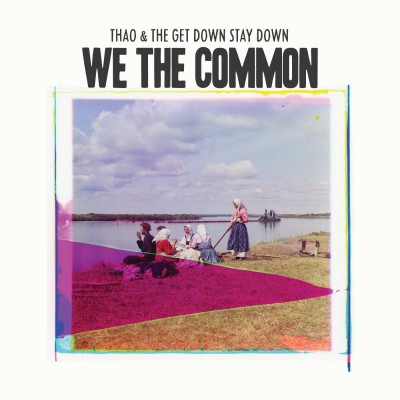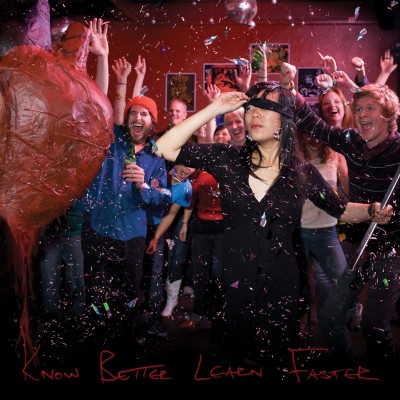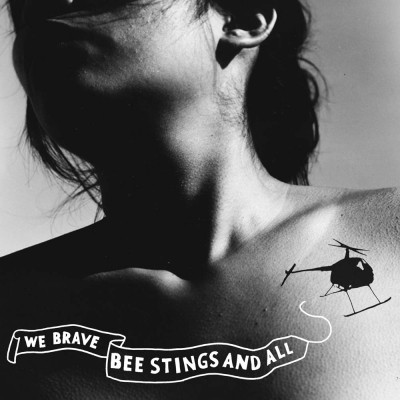There wasn’t going to be another album. After fifteen years of recording and performing, Thao was exhausted. Touring A Man Alive, the critical darling of 2016—and a bone-shaking reckoning about her relationship with her absent father—left Thao emotionally carved out. She was exploring other paths as an artist: scoring commissions, theatrical works, guest-hosting the podcast Song Exploder. She bought a house with her girlfriend, and they daydreamed playfully about opening a small restaurant. Thao was finding new ways to live in her own skin while confronting old scars—the pain and shame and grief and silence that Thao has carried like cloud cover. She wasn’t sure rock music was up to the task of what she had to say. There wasn’t going to be another album.
A temple is a place of worship and sanctuary. It is also a dwelling place for gods, religious objects, spiritual intangibles, and other pieces of ourselves. We all spend our lives searching for temples where we can belong and be loved. But those spaces can also be a kind of confinement. The new album opens with the title track, and with a dirty, guttural guitar riff that makes you want to drive through the desert at daybreak. It’s inspired by Vietnamese rock music from the 60s and 70s, the music of her mother’s generation, and the lyrics are in the voice of her mother. I wanted to start the album in her voice, Thao says, to bless my pursuit of my own happiness. In the song “Temple,” my mom is telling me to let go of our compiled pain, and live.
For almost 15 years, Thao has avoided being fully out in her public career. She has lived a compartmentalized life. It’s the result of being raised in a family and culture that is not necessarily concerned nor impressed with the social progress of mainstream America. And of growing up with the traumatic and traumatized so that you must shut down to get through. And of launching your career at a time when who you are and what you have to say could be dismissed or reduced on sight. A public career takes compromise, Thao has told herself, and she has allowed journalists and audiences and others to view and interpret her work through their own lenses. But that shit will kill you, she says.
It is the most sonically truthful record of the band’s career, because it is the first of the band albums that is self-produced. Thao and Adam Thompson produced it together, and also share songwriting credit on five tracks. The collaboration reflects the brave, full-hearted openness that is at the heart of the subject matter. Going into this record, I knew it was self-produce or bust. I also knew I wanted Adam to do it with me. We’ve been in this band together since we were 20 years old. Adam and I are like family—unfortunately, if you’re family to me, that might mean we don’t talk about anything for fifteen years. But now I’ve reached a point where I understand how I’ve been closed off in so many ways. I wanted to be different with this record.
In Los Angeles years ago, she bought two small bells because the sounds reminded her of the singing bowls played during Buddhist ceremonies she went to with her family when she was a kid, the original temples of her life. You can hear those bells on “How Could I,” a song about grieving for the grandmother who helped raise her. Rushing to her grandmother’s deathbed, Thao found her extended family gathered, chanting the Buddhist mantra, Nam-mô A-di-đà Phật, “I seek refuge in the Amitabha Buddha.”
I took out my prayer beads, a strand that had belonged to my grandmother, and I joined my family chanting. It was one of the most beautiful sounds I’ve ever heard. There’s a break in the second half of “How Could I,” a little interlude, where it’s my voice chanting that same prayer, layered and slowed down, and you can hear those bells.
A shift began on a trip to Vietnam with her mother, a trip portrayed in the 2017 documentary Nobody Dies. It was near the beginning of her relationship with her girlfriend, but Thao was not out to her extended family. The U.S. Embassy brought us over for that trip, not because I am queer, but because we’re an American band led by a Vietnamese-American woman. But one of the shows we played was the second-ever Southeast Asian Pride Festival. So I was out on stage, but not at the press conference. That’s pretty much my career in a nutshell. Live your life, but not on public record. That trip to Vietnam was so amazing and intense, and yet it was difficult for me because I was just beginning a relationship, one in which I already knew that we were a foregone conclusion. Everywhere I went, I was meeting relatives who immediately claimed me, they were family, and it was so moving but also so sad because I didn’t know if they would welcome me if they knew I was queer. It was really hard because it felt like such a homecoming, the warmth and purity of which I’d never be able to share with the person I loved.
You can hear that divide on Temple. It’s a kaleidoscopic record, with surprising experimental vocal and musical breaks chopping into rock beds, creating a bold feeling of dissonance while still being highly accessible. Each song feels like a portrait of an aspect of a life hanging, in balance but distant—and then there is a singular voice pushing and pulling the portrait off-kilter, then settling it down onto solid ground, to live right here, in this moment.
I have written so many songs and given so many interviews using metaphor and vague language as a cloak. That can maximize a listener’s connection to a song, but that can also keep me far from it. I believe that shame has made my work more general, when I’ve always wanted to be specific. This record is about me finally being specific. If you listen to my music, I want you to know who you are dealing with.
Compartmentalization was a habit and strategy for living in society. It was also a choice Thao made out of love and a sense of duty. It came from a fear of what being out would do to her relationship with her mother, and with the rest of her family, and with the broader Vietnamese community.
Many of the songs on this new album address how I’ve stopped or thwarted my life for my family’s sake and how I can’t do it anymore. Finding love has compelled me to this place. I wouldn’t have taken all this confrontation on if it was just me floating around on my own. This album is about me wanting to have a life with someone, and to do that I needed to be my full self at all times, in all places. I knew I had to go there, where if I had to, I would give up some of my family in order to have my own.
There is clear-eyed regret, and optimistic wisdom, in the stand-out track “Pure Cinema.” It’s a song about the divided life that has always been part of Thao’s stage presence. It’s a golden, longing pop song with late punk rock roots, a song about the many lives I’ve split my life into, how many selves I have been. It’s a song about what Thao has given to the high-energy shows the band is known for. Every night you perform and present yourself in a confident, commanding light, or you try to, even though you are just so exhausted and you don’t have a true home to go back to, to recharge. And it’s a song about finding a new way forward, bringing something more honest and pure to audiences while also saving a little for yourself.
Live a little, says the singer. It is advice that is both simple and incredibly difficult. It’s not about a single great shake. It’s about a daily practice of speaking clearly. A whole life. And being who you are.
I came up in a narrower time and field when it was still very hard to talk about your ethnicity without your work being reduced only to your ethnicity. I wasn’t ready to challenge the norms. I regret this: to deal with it, I just didn’t deal with it. Then in my life outside of music I had my family, all the customs, traditions, expectations, some of which I deeply love and appreciate, some of which were like a foot on my neck. In my work I didn’t talk about being queer so I wouldn’t have to deal with my mom and my family worrying about the attention I was bringing to the group. When I saw my family, I was just a respectful quiet daughter with no personal life. When I was out on tour and in the press I gravitated toward the tumbleweed musician archetype, I would talk about letting people down and making bad decisions while never specifying whom with.
Rage, honesty, and Octavia Butler and Ursula K. LeGuin are in the song “Phenom.” I was channeling other worlds—a post-apocalyptic utopia, where the scorched of the earth would come back and rule. Where people like me would be able to watch the shit go down. Like Roman Empire Colosseum, but righteous. The song is at the edge of mania. I really like the opportunity to be wild-eyed and disgusted with abuses of power, a song where I can be both scary and galvanizing. She’s looking forward to performing it on stage.
Merril Garbus of Tune-Yards, a dear friend and producer of A Man Alive, recommended Thao reach out to sound mixer Mikaelin “Blue” Bluespruce. He’s in high demand (Solange Cranes in the Sky, Skepta, Carly Rae Jepsen, Mariah Carey); it was a huge boon for the band when he agreed to mix Temple.
Blue mixes more in the hip-hop and pop world and that’s what we wanted, more fidelity, more upfront beat and groove-heavy mixes that are filled out and immersive, that really widened the register of the song. High highs, low lows, lush tones.
High highs. Low lows. Is there any better way to describe Thao & The Get Down Stay Down’s signature style? The lyrics, poetic and shattering and intimate and righteous and literary and most of all searingly personal—wrapped up in rock music that is virtuosic and playful and danceable and driving, that draws from funk and hip-hop and pop and folk, that makes you sing along in joy. On this album, the band pushes the form further, with songs that run the gamut of a sonic landscape, from resounding, unpredictably intricate beats to sweet, beautiful melodies that shine as if spotlit. And it’s a barn burner.
It turns out I didn’t want to make another record because I was afraid of what I knew I had to say and I was afraid to see what my family would do. But forcing my hand with this album helped make me whole. It was a bloodletting and a purge and then it was a benediction. I don’t know exactly what will happen with my family or with the elders of my Vietnamese community. I am hopeful that now, in belonging to myself, I can still belong to them.
There had to be another album—one that pushed open boundaries to contain a new kind of life. A larger space, a different kind of sanctuary. A temple where you don’t have to whisper.
I am excited for what touring can be now that I’m so much more at peace. I have focus and clarity because I’m not so compromised anymore. I’m married now; I have my partner and our home to ground me in this life, in my one life. And everything I do now, everywhere I go, every time I present myself to people, it is finally all of me.
Won’t you stay awhile / Find your family / Let them anchor you / In the open sea / It could get dangerous, baby / But how bad could it be?
Look what fear has done / To a young buck like me

